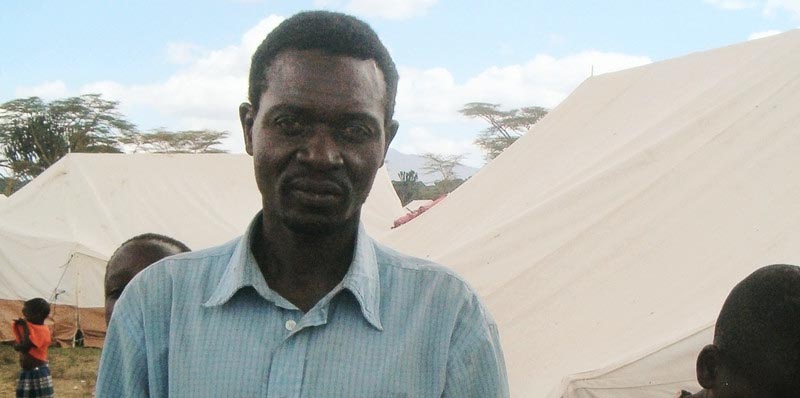Today, 8 November 2015 in Banjul, the Gambia, the African Commission on Human and Peoples’ Rights will review Kenya’s periodic report.
It will hear from the State that between 2008 and 2014, Kenya made “remarkable progress in safeguarding the rights, freedoms and duties of its people.”
Unfortunately, it will not hear how Kenya continues to fail to ensure the rights to justice and reparations for thousands of victims of gross and systemic human rights violations and international crimes committed during the Post-Election Violence (PEV) or Operation Usalama Watch, two episodes that illustrate the unprecedented extent and intensity of human rights abuses and violations experienced in Kenya during the period under review.
If there is a lesson to be learnt from Usalama Watch and other recent counter-terrorism operations, it is that mass abuses and violations are a persistent reality in Kenya.
null
During the PEV, between December 2007 and February 2008, an estimated 1,100 people were killed and thousands more were injured in beatings, machete attacks, rapes, police shootings and other acts that amount to crimes against humanity. An estimated 660,000 people were displaced. Eight years since the tragic events, victims of these horrific abuses, violations and crimes are still awaiting justice and reparations. While the state provided relief and resettlement support to a significant number of IDPs in the period, its interventions fell short of international human rights standards for justice and reparations. Thousands of the people have not been resettled or compensated, many of the injured or the families of those killed have yet to receive justice or reparations and most perpetrators are yet to face prosecution.
Violations against refugees and asylum seekers
Victims of operation Usalama Watch have not received truth, justice and reparations either. Between April and July 2014, the Government of Kenya undertook a security operation after criminal attacks in Nairobi’s Eastleigh neighbourhoods and on the Kenyan coast. The operation was characterised by arbitrary arrests and detentions in inhumane conditions as well as police abuse, targeted harassment, extortion and the ill-treatment of thousands of individuals. The operation disproportionately targeted the Somali community, including refugees and asylum-seekers.
Despite detailed reports by the media, human rights organisations and the Independent Police Oversight Authority (IPOA), no formal charges have been brought against implicated officers, and no remedies have been forthcoming for victims. In fact, the operation has been followed by an escalation of egregious violations such as enforced disappearances and extrajudicial killings in the context of further counter-terrorism operations.
No remedies
The failure of the State to include in its current periodic report the status of the remedies for these notorious events exposes a stark reality: that no remedies have been granted over this period. It is also indicative of the continued neglect of the subject of remedies for victims in Kenya. While the state has been resourceful and gone to great lengths at the regional level, particularly at the African Union, to hinder proceedings against Uhuru Kenyatta and William Ruto at the International Criminal Court (ICC), the same cannot be said of its efforts towards providing justice and reparations for victims in these same cases at home.
While in 2015 the President issued a public apology to victims, and established a reparations fund, a significant disjuncture remains between these actions, and those necessary for comprehensive remedy.
The right to remedy is firmly rooted in international law, and forms a key component of the African Charter on Human and People’s Rights. The State has an obligation to investigate violations, prosecute those responsible and provide victims with effective remedies, including reparations. As the report under review shows, the State did not make substantive progress towards this end.
The African Commission should recall that investigations on human rights abuses and violations were concluded in the period under consideration, most notably, by the Commission of Inquiry into the Post-Election Violence (CIPEV) and the Truth, Justice and Reconciliation Commission (TJRC). While both provided specific direction towards various aspects of remedy, the government has failed to act. The TJRC handed over its final report to President Kenyatta in May 2013, recommending that parliament establish a Committee for the Implementation of the Recommendations of the TJRC. This has still not happened.
If there is a lesson to be learnt from Usalama Watch and other recent counter-terrorism operations, it is that mass abuses and violations are a persistent reality in Kenya. Impunity thrives as a consequence of the failure to provide truth, justice and reparations for previous mass abuses and violations. Through its protective mandate, the African Commission can contribute to ending this legacy by resolving that the State urgently takes all appropriate measures to provide justice and reparations to all victims.
The African Commission should clearly highlight Kenya’s failure to address this crucial issue in its report. The African Commission should pass a resolution calling the Government of Kenya to set out objective and time-bound targets for the realisation of remedies for victims. Critical first steps towards would be for the State to: finally establish the Committee for the Implementation of the Recommendations of the TJRC; enact the necessary legislation to ensure its independence and impartiality; re-open PEV investigations and prosecute perpetrators, from the bottom up; and implement IPOA’s recommendations in relation to operation Usalama Watch.
This op-ed was first published the Sunday Nation on 8 November 2015 as:
Provide justice and reparations for abuse victims
https://www.nation.co.ke/oped/Opinion/Provide-justice-and-reparations-for-abuse-victims/-/440808/2946752/-/tjnxadz/-/index.html


